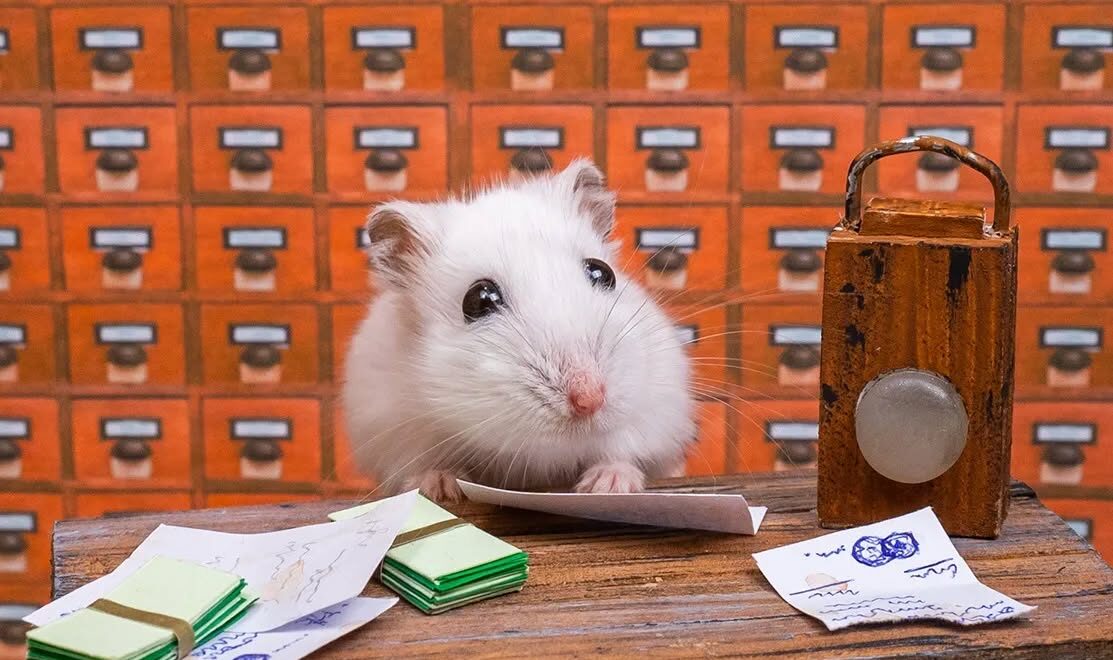Welcoming a hamster into your home is an exciting journey filled with joy and responsibility.
These adorable creatures require specific care to thrive and become a beloved part of your family.
Whether it’s understanding their dietary needs or creating a stimulating environment, being well-informed is key.
This guide offers essential tips to help budding hamster parents provide the best care possible, ensuring their little friend remains happy and healthy.
Embrace the adventure of hamster parenting with these insightful tips designed to make life enjoyable for both you and your furry companion.
1. Choose the Right Cage
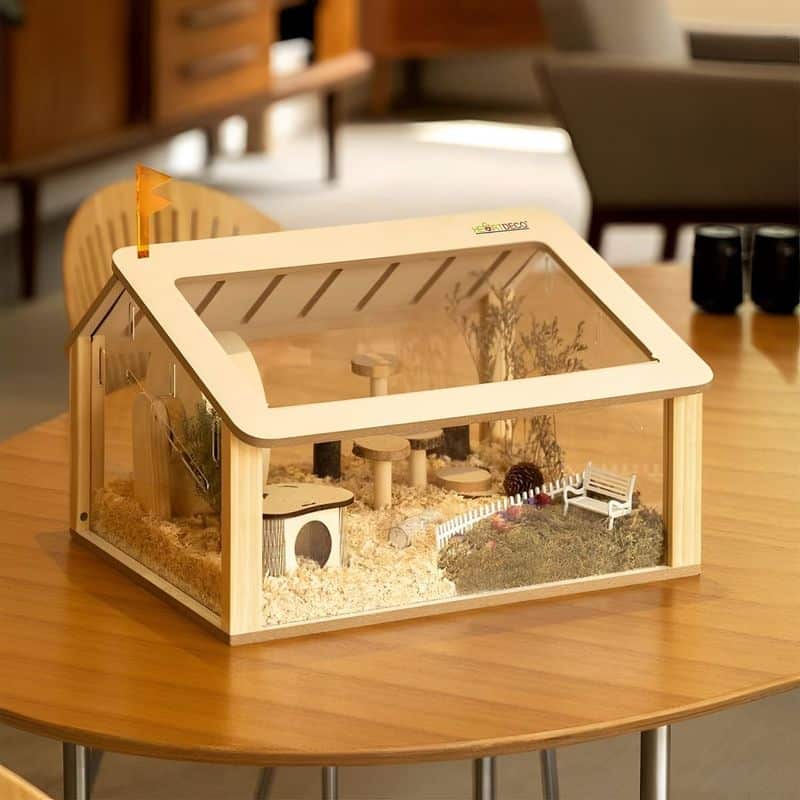
Selecting the appropriate cage is vital for your hamster’s wellbeing. Opt for a spacious habitat with horizontal bars for climbing and ventilation.
Ensure the cage has multiple levels for exploration.
Include accessories like a wheel, tunnels, and hideouts to keep your hamster entertained and active. Proper bedding is also crucial to provide comfort and absorb waste.
Avoid cages with wire floors as they can harm your hamster’s feet. A well-chosen cage promotes physical activity and mental stimulation.
2. Balanced Diet

A nutritious diet is essential for your hamster’s health. Include a mix of high-quality pellets, fresh vegetables, and occasional fruits.
Ensure clean, fresh water is always available. Avoid sugary treats and foods that are toxic to hamsters, like onions and chocolate.
Overfeeding can lead to obesity, so monitor portion sizes carefully.
A balanced diet supports your hamster’s immune system and overall wellbeing, helping them thrive in their new environment.
3. Safe Exercise
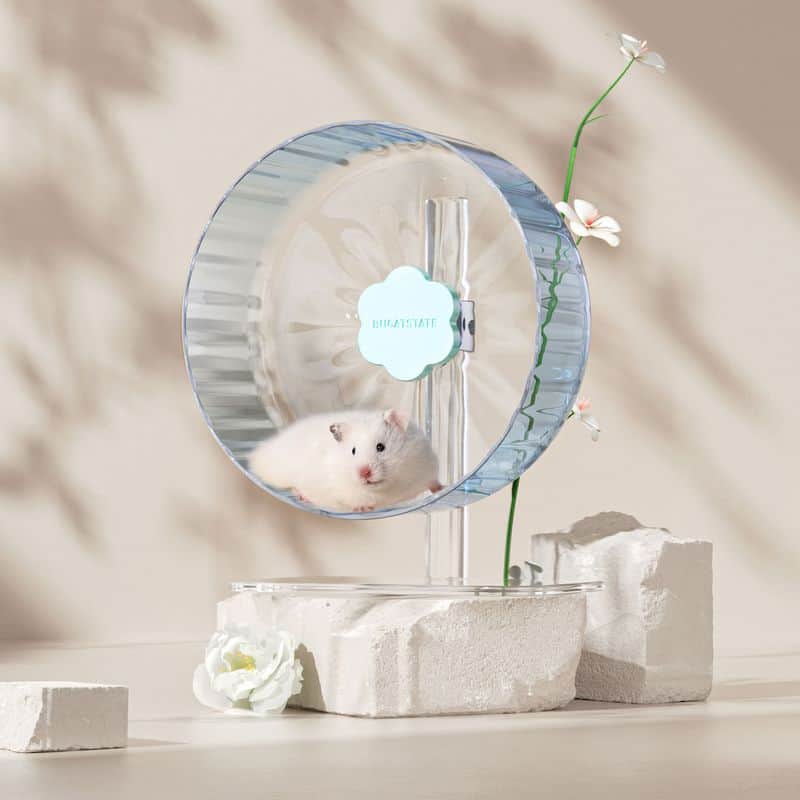
Exercise is crucial to keep your hamster healthy and prevent obesity. Provide a wheel in the cage for daily exercise.
Consider a safe exercise ball to allow your pet to explore outside the cage under supervision. Make sure the floor is carpeted to prevent slipping.
Regular exercise not only maintains physical health but also relieves stress and enhances mental wellbeing.
Encourage your hamster to stay active for a happier life.
4. Socialize Gently
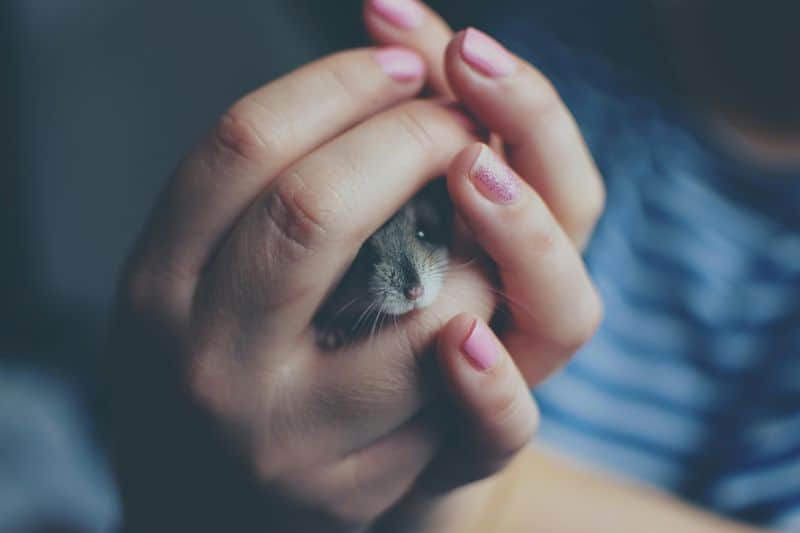
Building trust with your hamster takes time and patience. Start by gently speaking to them and offering treats by hand.
Gradually progress to handling, ensuring it’s done in a calm environment. Respect their cues if they seem stressed.
Regular interaction helps in bonding and makes your hamster feel secure. A well-socialized hamster is less likely to bite and more likely to enjoy being handled.
5. Regular Health Checks

Routine health checks are vital for early detection of any issues. Regularly inspect your hamster for signs of illness, such as changes in fur or weight.
Schedule vet visits for professional evaluations and vaccinations as needed. Be observant of behavioral changes that may indicate health problems.
Maintaining a health check routine ensures your hamster stays healthy and receives timely care if needed.
6. Clean Environment

Keeping your hamster’s environment clean is essential for their health. Regularly clean the cage, replace bedding, and sanitize accessories.
A clean living space prevents the buildup of harmful bacteria and odors. Use pet-safe cleaning products to ensure your hamster’s safety.
Maintaining cleanliness also makes for a more pleasant living space for both you and your pet. It reduces stress and the risk of infections.
7. Create Enrichment Activities

Mental stimulation is just as important as physical exercise. Provide toys and puzzle feeders to challenge your hamster’s mind.
Rotate toys regularly to keep things interesting and prevent boredom. Ensure toys are safe and size-appropriate to avoid injury.
Enrichment activities promote natural behaviors like foraging and climbing, leading to a happier, more engaged pet.
8. Understand Hamster Behavior
Learning about hamster behavior helps you respond appropriately to their needs. Observe their habits and body language to gauge their mood.
Understand signs of contentment or stress, like grooming or hiding. Pay attention to vocalizations and adjust interactions accordingly.
Knowledge of behavior fosters a better relationship with your pet, ensuring they feel understood and cared for.
9. Emergency Preparedness
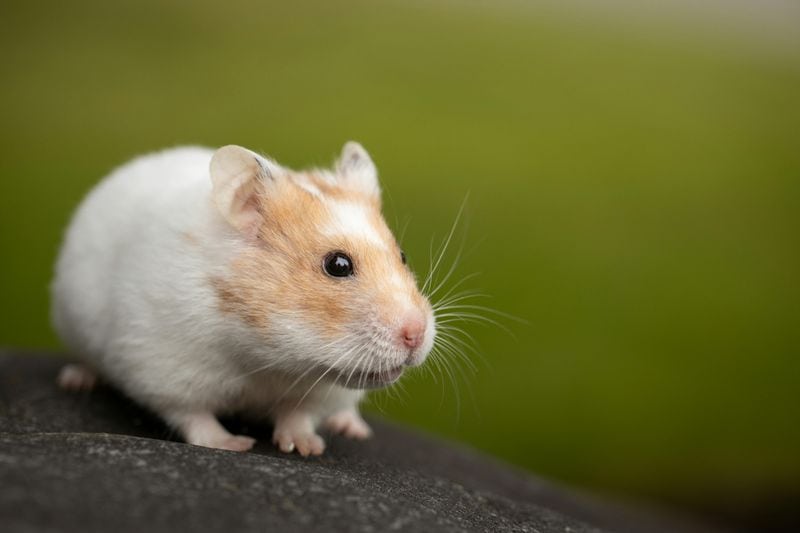
Being prepared for emergencies is crucial for every pet owner. Assemble a kit with essentials like bedding, food, and a first-aid guide.
Keep contact information for local veterinarians handy in case of urgent care needs. Familiarize yourself with common hamster ailments and first-aid measures.
An emergency plan ensures you can act swiftly and confidently if unexpected situations arise, safeguarding your hamster’s wellbeing.


